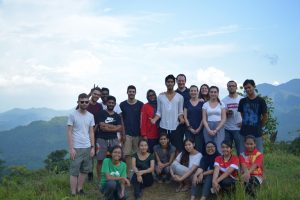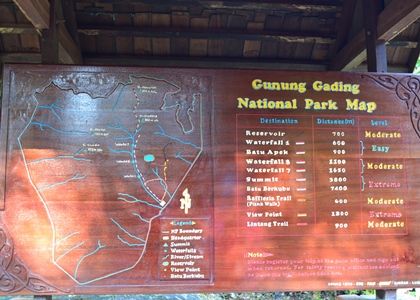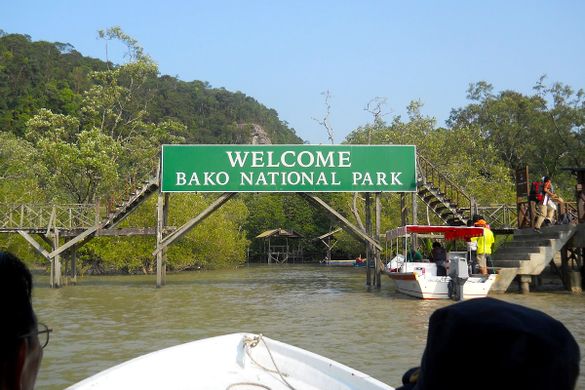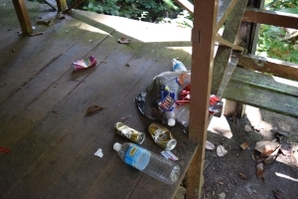Travelling is a worldwide phenomenon, but how will you behave when you arrive at new places? Would you care to behave responsibly? Will be be sensitive enough not to cause disrespect to your host countries?
Just about everyone has the desire to see a distant part of the world they could only see on the television set, or the computer screen. Whether these are pictures depicting a beautiful beach somewhere in the Caribbeans, a documentary on the beautiful mountain ranges of the Alps and Andes, or even travel shows peering into the lush rain forests of Borneo, they never fail to motivate us to buy an air ticket and just fly there. The big question mark hangs over the question: Would you be a responsible traveller?
What’s the big deal?
SO how do you actually travel responsibly? What does it even mean to travel responsibly? To put it into layman’s terms, to travel responsibly is the ability to give back to local communities, minimizing the environmental or social impact as a result of you travelling to that particular location, or do your part in helping the locals conserve fragile cultures or wildlife. If you’re wondering why you should be a responsible traveller, the reasons can be summed up in this report. As you can see, travelling responsibly does bring a lot of benefits; to you and the place you’re visiting.
In this article, we will be sharing some tips to help you become a responsible traveller, or at least be educated regarding this topic.
Tip #1: Do more research!

We always tried to convince ourselves that we have a pretty clear picture of the place that we are visiting soon. However, the reality is often the opposite. This could be the result of our own ignorance. We neglected to do deeper research. Very often we were convinced by love-at-first-sight of a beautiful location shown on flyers, travel shows, or travel blogs that we forgot that there might be more than meets the eye. As a responsible traveler, further research is needed. You would not want to inadvertently cause trouble for the locals, destroy fragile natural ecosystems, or even fail to support local conservation efforts. Fire up your search engines, buy a book, do more research; cause you’ll need these knowledge.
Tip #2: Choose the right tour operator.

Let’s face it; planning your own list of things-to-do while on holiday could be a mammoth task and not everyone is up to the challenge. There is a huge selection of tour operators or activity providers to choose from. However, as a responsible traveler, you can play a role in supporting responsible tourism. By selecting an operator that has a social impact as the core of its business, you have the opportunity to give back to the locals, while having a good time.
Tip #3: Visit a national park.
Believe it or not, national parks are not just for one to appreciate nature. It is also a great way to support the local economy while preserving the natural habitats of thousands of species of wildlife. National parks are specially created zones meant to conserve biodiversity and preserve natural habitats. They are open to potential adventure or natural enthusiasts. These zones are off-limits to loggers and developers; keeping natural at its most pristine condition is their main function. Going to a national park, such as the Bako National Park and Gunung Gading National Park in Kuching brings revenue to both the park management and the local communities. Entrance tickets sold can be used to fund maintenance. Boat fares charged to reach Bako National Park are used to fund the livelihood of the boatmen and their families.


Tip #4: Stop plucking!

It’s easy to just pluck a pretty flower or even an interesting plant along the way while walking in the jungle. It might seem like a harmless gesture but such action is actually quite damaging to the environment. Every part of the plant is important to the survival of its species. Flowers for example are required for successful pollination. It might sound okay if you were to think: “It’s just one small flower, no harm done.” In reality, you’re not the only out there doing the exact same thing. If that small plant that you pluck were to be on the the verge of extinction, you would have been directly contributing to the demise of its species. So the next time you see a pretty plant; it’s time to put those “itchy” hands behind and make sure picture is all you capture.
Tip #5: Don’t litter; bring your trash back.

Since young we’ve been taught to not litter wherever we go; always throw your trash into the dustbin. Yet as we grew older, these teachings seemed to fade away. Perhaps the feeling of freedom, or just plainly ignorant, plastic food wrappers and bottles are getting common on jungle trekking trails, at the waterfalls or rest stops. It is such sad scene to see a beautiful natural attraction ruined by garbage, not to mention the extra effort needed to remove them. Be a responsible traveler (and also a responsible person), and take your trash with you until you could properly dispose of them.
Tip #6: Volunteer wisely.

Joining a conservation volunteering program (i.e orangutan conservation, sea-turtle conservation etc.) or volunteer as project-based participant (i.e building houses, micro-hydroelectric dams etc) is a great way to help under-served communities while getting to travel to a new place. Some of these volunteer programs requires you to pay while others don’t so make sure you know what you want and what suits you. The last thing you want is volunteering for the wrong program. Also check the background of the organizers to make sure they are genuine with their cause. If you plan to volunteer in Malaysia you can check out Fuze Ecoteer’s volunteering projects.
Tip #7: Keep an open mind.

The last item on our list has more to do with your psychological state while travelling. Keeping an open mind, accepting the way of the life of the people (instead of looking down on them), participate in cultural activities are different ways for you to enjoy an authentic tour experience as well as restoring the dignity of the people. By respecting the customs of the land, you are sending a strong message of appreciation to the people living there. This will encourage them to preserve what’s left of their fragile cultural aspect in a world increasingly swallowed by modernization.



